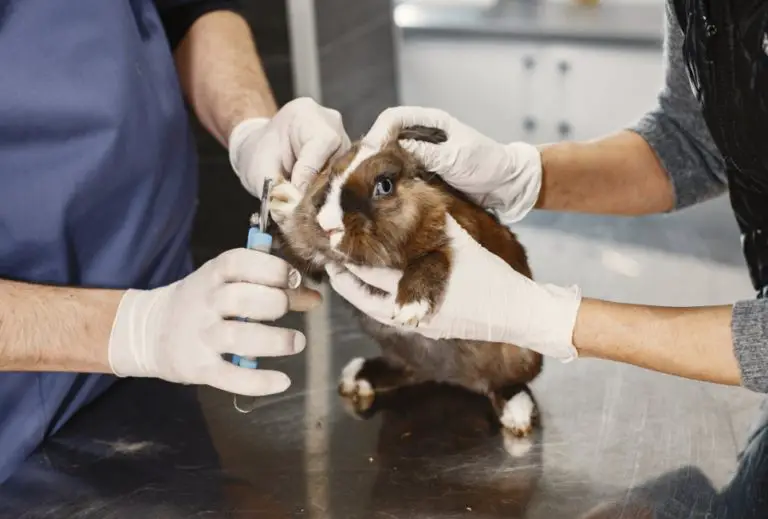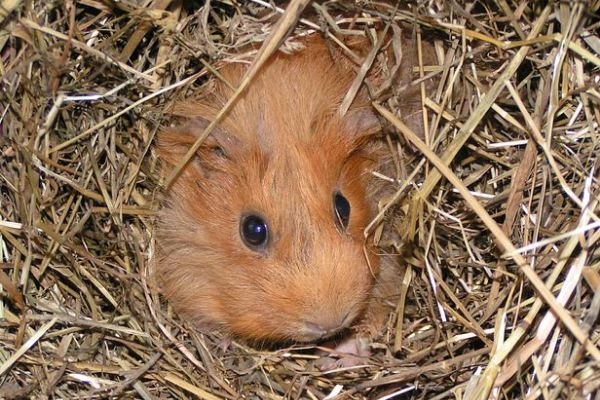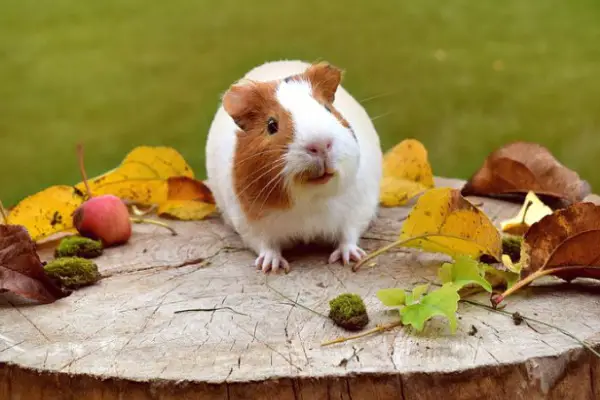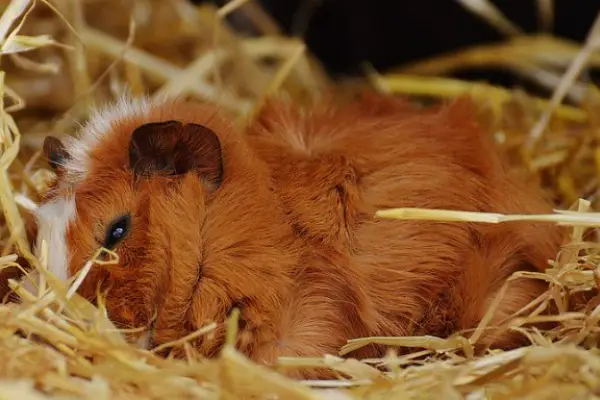Can Guinea Pigs Eat Mandarins [Pros & Cons]
![Can Guinea Pigs Eat Mandarins [Pros & Cons] Can Guinea Pigs Eat Mandarins](https://petcreeks.com/wp-content/uploads/2022/04/Can-Guinea-Pigs-Eat-Mandarins.jpg)
Can guinea pigs eat mandarins? Join me let’s find out together…
Are you considering adding mandarins to your guinea pig’s diet? We all know that guinea pigs love their fruit, but it’s important to know which fruits are safe for them to eat.
In this blog post, we’ll dive into the topic of whether guinea pigs can eat mandarins.
We’ll explore the nutritional benefits and potential risks of adding mandarins to their diet, so you can make an informed decision about what to feed your furry friend.
So, let’s get started!
Can Guinea Pigs Eat Mandarins
Yes, guinea pigs can eat mandarins. Mandarins are a safe food for guinea pigs in moderation because they contain vitamin C, which is essential for their health.
However, they should only be given as an occasional treat due to their high sugar content.
You should also make sure to wash the mandarin thoroughly before serving it to your guinea pig.
Additionally, remove any seeds or peel before feeding them to your pet.
Overall, while mandarins can be a fun and tasty addition to your guinea pig’s diet, they should not be a staple food.
How to Feed Mandarin to Your Guinea Pigs
Here is a step-by-step process for feeding Mandarins to guinea pigs:
- To get rid of any dirt, pesticides, or other impurities, thoroughly wash the Mandarin with water.
- As much of the white pith as you can get off the Mandarin after peeling it. Citrus fruit cannot be digested properly by guinea pigs, and the pith might upset their stomachs.
- The Mandarin should be cut into pieces that are a little larger than a thumbnail. Your guinea pig will find it simpler to consume and digest thanks to this.
- Your guinea pig should be given a tiny bit of Mandarin. Start off with a tiny bit and wait to see if your guinea pig like it before providing more.
- After feeding Mandarin, keep an eye on your guinea pig. Citrus fruits can be hard for some guinea pigs to digest, and they can get upset stomachs, have diarrhea, or have other digestive problems as a result.
- Provide mandarins just as a treat or sporadic snack. Guinea pigs need a diet that is rich in hay, full of fresh produce, and low in pellets. They shouldn’t consume more than 10% of their diet in treats.
- After a few hours, remove any unfinished mandarin from your guinea pig’s cage to keep it from deteriorating and luring pests like flies.
You may give your guinea pig mandarins as a delightful snack without risk if you follow these instructions.
Always keep an eye out for indicators of digestive problems in your guinea pig and change their food as necessary.
Potential Health Risks of Feeding Mandarin to Guinea Pigs
Here are some potential health risks of feeding mandarin to guinea pigs:
- High in sugar: Mandarins are high in sugar, which can lead to obesity and other health problems in guinea pigs if eaten in excess.
- Digestive issues: Guinea pigs have a digestive system that can be affected by sudden changes in diet. Eating mandarins, which are high in fiber, can cause gastrointestinal issues such as bloating, gas, and diarrhea.
- Dental issues: Mandarins are acidic and can harm your guinea pig if eaten too much or too much.
- Vitamin C Overdose: Guinea pigs need vitamin C in their diet, but mandarins are very high in vitamin C. Eating too many mandarins can lead to excess vitamin C, which can cause diarrhea, bladder stones, and other health issues.
- Allergic reactions: Mandarin may trigger allergic responses in certain guinea pigs, including skin rashes, hives, and other unpleasant symptoms.
- Exposure to pesticides: All fruits and vegetables, including mandarins, can be treated with pesticides that could be dangerous for guinea pigs. Mandarin must be well-cleaned and prepared before being fed to your guinea pig.
Ways of Feeding Mandarins to Guinea Pigs
Here are different ways to feed mandarins to guinea pigs:
- Cut the mandarin into small, bite-sized pieces and feed it to your guinea pig as a treat.
- Mix small pieces of mandarin with your guinea pig’s regular food as a snack.
- Freeze small pieces of mandarin and feed them as a refreshing treat on hot days.
- Purée the mandarin and mix it with water to create a fruit-infused drinking water for your guinea pig.
- Use the mandarin as a garnish on a fresh salad of guinea pig-safe vegetables, such as carrots, bell peppers, and cucumbers.
Potential Benefits of Feeding Mandarins to Guinea Pigs
Feeding mandarins to guinea pigs can provide several potential benefits for their health and well-being:
- Immune system booster: Vitamin C and antioxidants in mandarins help fortify a guinea pig’s defenses against disease.
- Improves dental health: Chewing on a mandarin can assist a guinea pig’s constantly developing teeth to wear down, which promotes dental health.
- Variety in diet: Mandarins may be fed to guinea pigs to give diversity to their diet and keep them from becoming sick of eating the same things every day.
- Natural source of sugar:: Mandarins are a natural supply of sugar, which can provide guinea pigs energy.
- Digestive health: The high fiber content of mandarins helps support guinea pigs’ healthy digestion and stave against digestive issues.
- It’s a source of hydration: the water content of Mandarins is high, which can assist guinea pigs stay hydrated and prevent dehydration.
- Good source of Vitamin C: Mandarins are an excellent source of vitamin C, which is important for guinea pigs because they cannot make it on their own. Scurvy is a dangerous illness that can develop in guinea pigs if they don’t get enough vitamin C.
- It offers antioxidant properties: Mandarins have anti-oxidant characteristics that can shield guinea pigs from cell damage and shield them from some ailments.
- Low in calories: Mandarins are low in calories, making them a healthy snack option for guinea pigs that are prone to obesity.
Other safe fruits and veggies for guinea pigs:
Related questions
Can guinea pigs safely eat mandarins?
Yes, guinea pigs can eat mandarins in moderation. They are a good source of vitamin C, which is an essential nutrient for guinea pigs.
Is it okay to feed guinea pigs mandarins every day?
No, mandarins should not make up the bulk of your guinea pig’s diet, and they should only be given as an occasional treat. Too much fruit can cause digestive problems for guinea pigs.
Should I peel the mandarins before giving them to my guinea pig?
Yes, you should peel the mandarins before giving them to your guinea pig. The peel can be difficult to digest and may upset their stomach.
Can eating too many mandarins be harmful to my guinea pig’s health?
Yes, eating too many mandarins can be harmful to your guinea pig’s health.
The high sugar content in mandarins can contribute to obesity and dental problems in guinea pigs.
How much Mandarin can I give to my guinea pig?
It is recommended to only give your guinea pig a small amount of mandarin, about a quarter of a wedge at a time.
A balanced diet consisting of hay, pellets, vegetables, and occasional fruits is key for a guinea pig’s health.
What should I do if my guinea pig shows signs of illness after eating mandarins?
If your guinea pig shows signs of illness after eating mandarins, such as diarrhea or vomiting, remove the mandarin from their diet and monitor them closely.
If symptoms persist, contact your veterinarian.
Conclusion
In conclusion, while guinea pigs can eat a variety of fruits in moderation, mandarins should be given to them sparingly or avoided altogether due to their high sugar content.
While guinea pigs may enjoy the sweet taste of mandarins, their digestive systems are not well-equipped to handle large amounts of sugar, which can lead to health problems.
It’s always important to do your research and make sure that the foods you feed your furry friends are safe and healthy for them.
So, the next time you’re thinking about giving your guinea pig a treat, consider opting for a safer option such as leafy greens or other vegetable treats.
Your little friend will thank you for it!




![Can Guinea Pigs Eat Bananas [Helpful Tips] Can Guinea Pigs Eat Bananas](https://petcreeks.com/wp-content/uploads/2022/04/Can-Guinea-Pigs-Eat-Bananas-768x614.jpg)

![Can Guinea Pigs Eat Broccoli [Benefits & Risks] Can Guinea Pigs Eat Broccoli](https://petcreeks.com/wp-content/uploads/2022/04/Can-Guinea-Pigs-Eat-Broccoli-768x614.jpg)